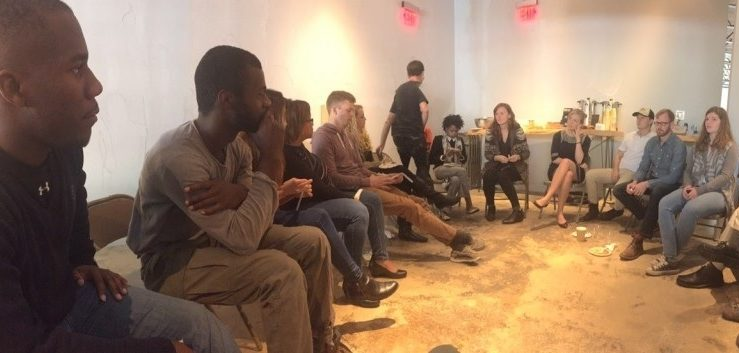To be understood as to understand
Thanks to Cath Thompson for this story, which has been adapted from this original post and republished with permission from the author.
In the midst of race-based violence in America, has anyone else been wondering, “what is my role?” Over the past year or so, I have been repeatedly wondering how I can be a helper and not a harmer (is that a word?), while also acknowledging my privilege.
Perhaps you come from a place of privilege or perhaps you know what it means to be discriminated against (or perhaps both…) How can you be part of the solution, wherever you sit in the wide spectrum of the human family? How can you be an ally to the hurting? Are “solutions” and “being an ally” too presumptive?
Where do we even begin?
I am a firm believer that the first and best thing is always to listen. Do not craft action plans without considering what’s at stake. So many of us desire foremost to be heard, to know that our stories and pain are held as valuable, and to have others simply walk alongside in our healing journeys. “Solutions” may or may not ever materialise, and sometimes that’s ok.
I believed for a long time that I didn’t have much to offer, because I was on the ‘outside’ of populations who are most seriously affected by our deepest social injustices. I didn’t know what would be meaningful enough, and if I did do anything, it risks being seen as tokenism, right?
But with the violence of this summer, I couldn’t do nothing. I desired so deeply to discuss these issues with people different than myself, so I finally did the realest thing I know how to do: make a meal.
I approached leaders at Downtown Hope which is a Christian community in Annapolis, Maryland. Their mission statement reads: “Our prayer is that Annapolis would be a city where all spheres of culture flourish, where God’s shalom is present…where guns used to murder are melted down into gardening tools used to cultivate, where drug dealers sell nectarines instead of narcotics on street corners.”
With their help, I organised an open potluck for people who were interested in discussing questions of identity, community, and racial reconciliation, through the lens of faith. We had folks show up from a diverse set of neighbourhoods in the city, and a fabulous spread of food.
The group explored “modern neighbourliness” in this age of virtual and digitized relationships (Modern wisdom from a participant: think before you post). We got to know each other on a human level by responding to questions about our backgrounds, interests, and experiences growing up in the community.
I found the perspectives from the older folks to be very different from those of Millenials in the room, with the Millenials more cynical about hope for reconciliation and peace in the streets.
We ended the meal with the Prayer of Saint Francis, an oldie but a goodie, that seems more like a battle cry than a poem to me these days. While our meal barely scratched the surface of all that is needed, it was one teeny tiny work of facing into the tough questions, and perhaps it was one tiny brick laid in the long road of reconciliation.
The Prayer of Saint Francis
Lord, make me an instrument of thy peace.
Where there is hatred, let me sow love;
Where there is injury, pardon;
Where there is doubt, faith;
Where there is despair, hope;
Where there is darkness, light;
Where there is sadness, joy.
O divine Master, grant that I may not so much seek
To be consoled as to console,
To be understood as to understand,
To be loved as to love;
For it is in giving that we receive;
It is in pardoning that we are pardoned;
It is in dying to self that we are born to eternal life.
About the author
Cath Thompson is the founder and director of PeaceMeals, a program which brings individuals together in the kitchen and around the table for education on cooking, nutrition, and wellness, often in the wake of trauma or difficult seasons of life.
Cath has a background in peacebuilding and security, while working in the charitable and philanthropic sectors. Cath loves to gather people around the table to be nourished and refreshed across the divides of culture, politics, and religion, through good food, good conversation, and good community.

